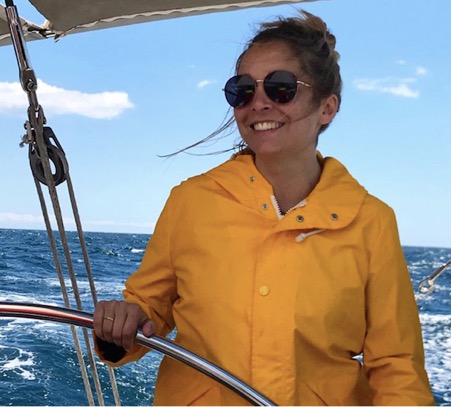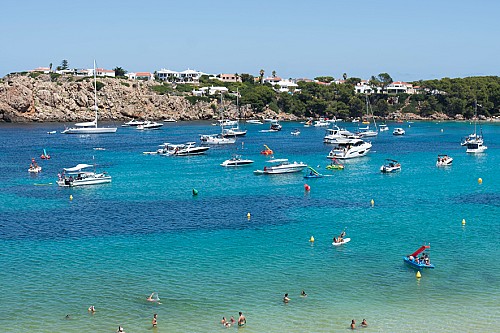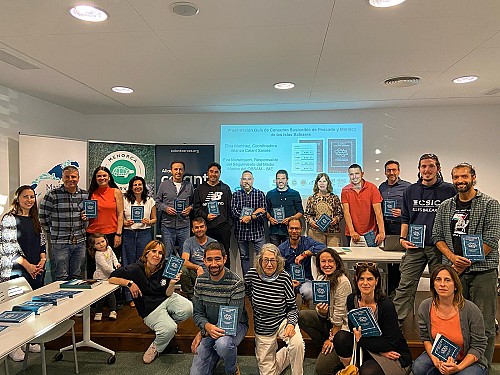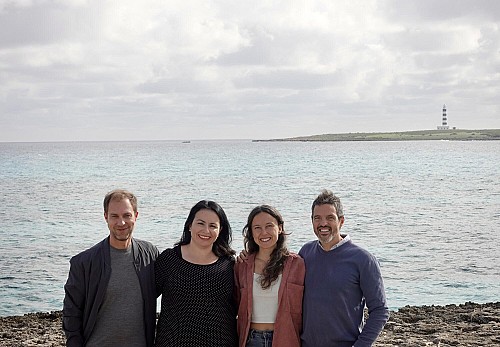Annya Crane is passionate about the sea and has always dreamt of working closer to this environment. She recently obtained a Master’s in cultural and social Anthropology with the university of Amsterdam. She decided to focus her research on the study of small-scale fishing communities in the Balearic islands and apply the study to Marilles Foundation’s work. She believes in interdisciplinary research and in this regard, the role of anthropology in marine conservation. Prior to studying Anthropology, Annya had graduated in cultural management and international development with the university of Barcelona. Annya has over 10years of experience leading wide projects and behaviour change work in international development for INGOs and UNESCO in Paris.
Why Menorca for your Masters research?
I could have chosen any of the Balearic islands for this study since all fishing communities seem to be facing similar challenges. I decided to focus on Menorca for several reasons, first of all it was smaller than Mallorca and therefore more manageable in the timeframe that I had. Ethnographic research, which is used in Anthropology requires spending a lengthy amount of time with the community been studied. This choice also seem to align with Marilles’ interest since it was the island where less work had been carried out with the fishing community to date.
What was your research topic?
My research looked at the fraught relationship between social, cultural, economic, and environmental sustainability from the micro-perspective of how fishing family firms try to sustain themselves. I questioned whether there is a future for profesional fishing in Menorca, both from the problem of the lack of generational renewal but also in relation to the environmental sustainability of their practice and the state of the sea. This allowed me to get to know fishing families and their history, spend time on land and at sea with them and understand why their children are not interested in fishing. I built strong relations with many fishers which allowed understand their views and behaviours in regards to conservation recommendations.
What have you learnt during your 4 months in Menorca?
Many things. The fishing sector in Menorca is rooted in a long social and cultural tradition. While fishers are often concerned by what happens in their own boat they are not individualistic, they are social actors whose decisions and motivations are not solely driven by economic factors. They are embedded in a complex relationship with (often top-down) policies, social relations, norms and values. Fishers are quite pessimistic, frustrated and often feel like they have little to do with decisions that concern them. I also saw the willingness from many fishers to do things differently, to go back to more sustainable and traditional fishing practices but for that to happen support needs to be given to them. Most fishermen have a unique relation with the sea which I want to believe could contribute to conservation models. Such knowledge needs to be safeguarded.
Is there a bright future for the professional fishing sector?
I want to believe there can be a future for small-scale fishing in Menorca. To define what this might look like we need to promote co-management model where fishers, conservationist and the civil society work together to avoid top down policies that are alienated with the territory. The sector faces the challenge of attracting young generations that are not from fishing families. There is also a need to safeguard the knowledge fishermen have of the sea and make sure young fishers acquire this knowledge. We need to encourage the usage of low-impact gear and support those fishers who are willing to do things differently. Consumers have a role to play too, we both need to rethink our fish consumption, value local products but also diversify the species we eat to reduce the risk of overfishing.
Quick test for sea lovers:
A book: The sea around us from Rachel Carson. 60 years ago the author already raised the alarm that our oceans need help.
An image that evokes the Balearics: Shades of blue of the Mediterranean and the wooden gates of the Cami de Cavalls in Menorca.
A marine species: Whales! for sure. I was lucky to see what I think must have been a fin whale in April as I was sat at Punta Nati in Menorca watching the sunset. It was magical.
A benchmark organisation or person: Tracy Edwards because I also dream of sailing around the world one day.
A beach: Pregonda
A sentence that defines you: I always make things seem easy and doable
according to my friends.
Are you an optimist, a realist or a pessimist? Definitely an optimist.





